For nonprofit leaders, adapting to changing conditions is about keeping the core mission of the organization on track while trying new strategies.
Adaptive Leadership: A Case Study
This kind of leadership requires adaptive capacity, defined as “the ability to adapt to changed circumstances while fulfilling one’s core purpose,” and it’s “an essential skill in an age of unforeseeable disruption and volatility” by Andrew Zolli and Ann Marie Healy.
An excellent case study in adaptive capacity comes from the nonprofit Corner of Love, which had to adapt due to political violence and instability in its home country of Nicaragua. Though circumstances in this case are dramatic, we hope the lessons learned will help you increase the adaptive capacity of your organization as you seek to transform the communities you work in.
Background: Tanya and Nelson Amador founded Corner of Love in 1992 to provide health care in rural Nicaragua. Nelson had grown up in San Ramon, a village in Nicaragua. After meeting Tanya in the U.S. and starting their family, they relocated to Nelson’s hometown to carry out the work of providing physical and spiritual nurture. They coordinated teams of medical professionals and volunteers who ran mobile clinics and built up the local communities of care. After several decades in San Ramon, the ministry was well established, with the equipment and infrastructure to provide a high level of care.
Change and Disruption: In 2018, political disruption and violence in Nicaragua intensified as the government became increasingly authoritarian. Nonprofits, church groups, and public universities were seen as threats to the control of the regime: more than 5,000 have been forced to close and some of their leaders were unjustly imprisoned. Tanya and Nelson began to fear for their safety when one of the officials who regulated their work was implicated in local gun violence. They packed a few bags hoping to return soon to their home and work. But they were unable to return, becoming two of the 700,000 Nicaraguans (10% of the country’s total population) who fled between 2018-2023 due to political violence and economical instability.
Adaptive Pivot: Tanya and Nelson wanted to continue the good work they had started, but faced daunting challenges. Their ministry had been location specific. They lost access to all their equipment. Their employees were either still in Nicaragua or had also become refugees. They decided to resettle in Costa Rica, where many other Nicaraguan refugees had fled. They set up new headquarters in a restaurant near the Nicaraguan border, and they began the work of starting over. Instead of mobile clinics, they brought patients to the restaurant site by bus. Intake interviews were conducted in the dining room, examinations happened in a screened off area. A supply closet became the pharmacy. Dental work and supply distribution were done out of storage containers. In tandem with these pivots, plans were drawn up to build an actual clinic on the property.
Lessons for Nonprofit Leaders
Tanya shared some best practices that increased their adaptive capacity.
Emotionally and mentally accepting the change is important.
“There were a lot of tears, especially at night,” Tanya said. “There was a gradual acceptance that we can’t go back. We were starting out barehanded. How do you recreate what you had?” Tanya talked about the importance of scaling down the work to match the reduction in resources. They had to consider what they could do with the limited supplies they had. “Your brain keeps going back to how it was–we had to retrain our brains to be okay with what we had.” Getting started with what they did have, diving into the work, helped them accept this new normal.
Use your core purpose as a compass while you remap the needs of those you serve.
In choosing a new location, they considered their core mission: healthcare to Nicaraguans in need. So they listened and learned where the refugees who were physically injured were relocating to, and they set up services there. Corner of Love increased the scope of its work to meet the more immediate needs of the refugees but kept its core mission. Tanya said, “People were so hungry and suddenly we were giving out so much food and meals. That was not who we had been. We could have turned into a ministry to feed the poor. That’s not our end goal, not really who we are. Healthcare is our strength and who we are, and we knew that was going to be needed–but we also knew we needed to feed people at first.”
Leaders need to be more hands-on in times of change.
Prior to the pivot, the nonprofit had a strong infrastructure and identity that allowed Tanya and Nelson to do a lot of delegating. Starting over required them to increase their presence and leadership. “There is no substitute for being right there with the team,” Tanya said. “When you pivot, you become vulnerable to losing the mission. We had a lot of new employees and participants; if we hadn’t been hands-on again, it would have been detrimental to keeping the core mission.”
Diversify Your Base.
“It’s super important to diversify your base and have friends and supporters of all walks of life,” Tanya said. The pivot required different kinds of support, and the couple had to reevaluate some assumptions as support came in from organizations that they thought would not get behind faith-based work. “In our darkest hours sometimes our biggest supporters were a surprise to me.”
Expect Big Changes.
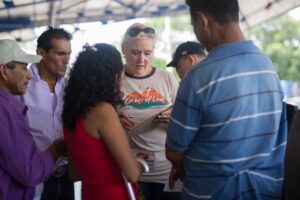
“If you operate long enough, you will face some kind of a crisis where your mission has to be portable. Areas have hurricanes, earthquakes, government problems, pandemics. You can’t really prepare yourself for what we went through, but you could hold loosely the sense of access you need. Think more about portability and scale.”
Results of the Adaptive Pivot
Currently, Corner of Love is working in Costa Rica and the United States, focusing on the needs of displaced families. They serve more than 30,000 refugees annually by providing services through a refugee relief center with medical, dental, and optical clinics; home visitation to vulnerable families; and a nutrition and education program.
The Center for Transforming Engagement seeks to advance the art of community building by creating innovative pathways for meaningful Impact and changing the narrative around faith-based community building. We offer workshops, training, and resilience groups for teams and individuals.

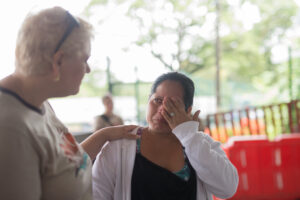
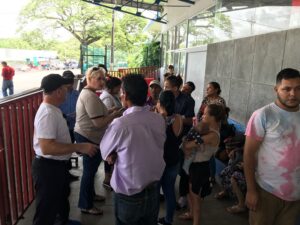
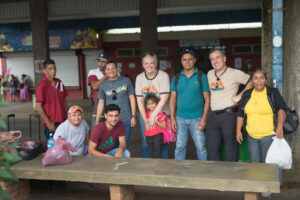

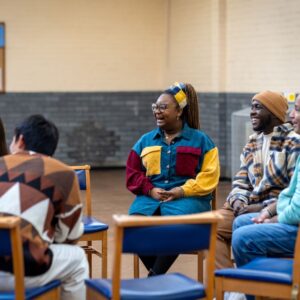
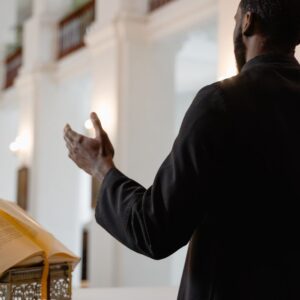






0 Comments